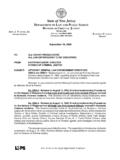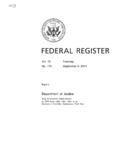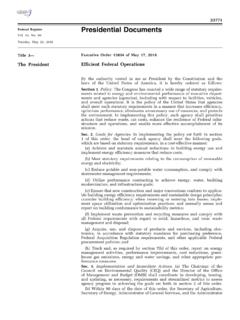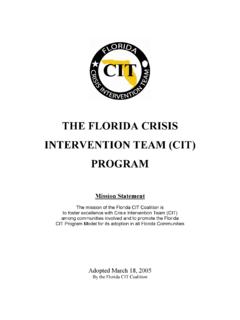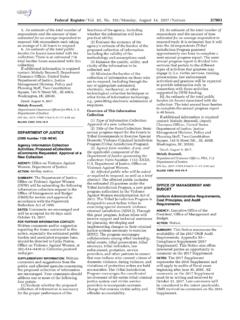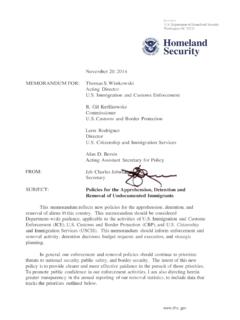Transcription of the Public-Private Partnership Law Review
1 Public-Private Partnership Law ReviewFourth Edition EditorsBruno Werneck and M rio SaadilawreviewsthePublic-Private Partnership Law ReviewFourth EditionPublic-Private Partnership Law ReviewFourth Edition EditorsBruno Werneck and M rio SaadilawreviewsReproduced with permission from Law Business Research LtdThis article was first published in April 2018 For further information please contact Tom BarnesSENIOR BUSINESS DEVELOPMENT MANAGER Nick BaretteBUSINESS DEVELOPMENT MANAGERS Thomas Lee, Joel WoodsACCOUNT MANAGERS Pere Aspinall, Sophie Emberson, Laura Lynas, Jack BagnallPRODUCT MARKETING EXECUTIVE Rebecca MogridgeRESEARCHER Arthur HunterEDITORIAL COORDINATOR Iain WilsonHEAD OF PRODUCTION Adam MyersPRODUCTION EDITOR Gina MeteSUBEDITOR Claire AncellCHIEF EXECUTIVE OFFICER Paul HowarthPublished in the United Kingdom by Law Business Research Ltd, London87 Lancaster Road, London, W11 1QQ, UK 2018 Law Business Research No photocopying: copyright licences do not apply.
2 The information provided in this publication is general and may not apply in a specific situation, nor does it necessarily represent the views of authors firms or their clients. Legal advice should always be sought before taking any legal action based on the information provided. The publishers accept no responsibility for any acts or omissions contained herein. Although the information provided is accurate as of March 2018, be advised that this is a developing concerning reproduction should be sent to Law Business Research, at the address above. Enquiries concerning editorial content should be directed to the Publisher 978-1-912228-20-1 Printed in Great Britain by Encompass Print Solutions, Derbyshire Tel: 0844 2480 112 THE ACQUISITION AND LEVERAGED FINANCE REVIEWTHE ANTI-BRIBERY AND ANTI-CORRUPTION REVIEWTHE ASSET MANAGEMENT REVIEWTHE ASSET TRACING AND RECOVERY REVIEWTHE AVIATION LAW REVIEWTHE BANKING LITIGATION LAW REVIEWTHE BANKING REGULATION REVIEWTHE CARTELS AND LENIENCY REVIEWTHE CLASS ACTIONS LAW REVIEWTHE CONSUMER FINANCE LAW REVIEWTHE CORPORATE GOVERNANCE REVIEWTHE CORPORATE IMMIGRATION REVIEWTHE DISPUTE RESOLUTION REVIEWTHE DOMINANCE AND MONOPOLIES REVIEWTHE EMPLOYMENT LAW REVIEWTHE ENERGY REGULATION AND MARKETS REVIEWTHE ENVIRONMENT AND CLIMATE CHANGE LAW REVIEWTHE EXECUTIVE REMUNERATION REVIEWTHE FOREIGN INVESTMENT REGULATION REVIEWTHE FRANCHISE LAW REVIEWTHE GAMBLING LAW REVIEWTHE GOVERNMENT PROCUREMENT REVIEWTHE HEALTHCARE LAW REVIEWTHE INITIAL PUBLIC OFFERINGS REVIEWTHE INSOLVENCY REVIEWTHE INSURANCE AND REINSURANCE LAW REVIEWTHE INTELLECTUAL PROPERTY AND ANTITRUST REVIEWTHE INTELLECTUAL PROPERTY
3 REVIEWTHE INTERNATIONAL ARBITRATION REVIEWTHE INTERNATIONAL CAPITAL MARKETS Review lawreviewsTHE INTERNATIONAL INVESTIGATIONS REVIEWTHE INTERNATIONAL TRADE LAW REVIEWTHE INVESTMENT TREATY ARBITRATION REVIEWTHE INWARD INVESTMENT AND INTERNATIONAL TAXATION REVIEWTHE ISLAMIC FINANCE AND MARKETS LAW REVIEWTHE LENDING AND SECURED FINANCE REVIEWTHE LIFE SCIENCES LAW REVIEWTHE MERGER CONTROL REVIEWTHE MERGERS AND ACQUISITIONS REVIEWTHE MINING LAW REVIEWTHE OIL AND GAS LAW REVIEWTHE PATENT LITIGATION LAW REVIEWTHE PRIVACY, DATA PROTECTION AND CYBERSECURITY LAW REVIEWTHE PRIVATE COMPETITION ENFORCEMENT REVIEWTHE PRIVATE EQUITY REVIEWTHE PRIVATE WEALTH AND PRIVATE CLIENT REVIEWTHE PRODUCT REGULATION AND LIABILITY REVIEWTHE PROJECTS AND CONSTRUCTION REVIEWTHE PUBLIC COMPETITION ENFORCEMENT REVIEWTHE PUBLIC PRIVATE Partnership LAW REVIEWTHE REAL ESTATE LAW REVIEWTHE REAL ESTATE M&A AND PRIVATE EQUITY REVIEWTHE RESTRUCTURING REVIEWTHE SECURITIES LITIGATION REVIEWTHE SHAREHOLDER RIGHTS AND ACTIVISM REVIEWTHE SHIPPING LAW REVIEWTHE SPORTS LAW REVIEWTHE TAX DISPUTES AND LITIGATION REVIEWTHE TECHNOLOGY.
4 MEDIA AND TELECOMMUNICATIONS REVIEWTHE THIRD PARTY LITIGATION FUNDING LAW REVIEWTHE TRADEMARKS LAW REVIEWTHE TRANSFER PRICING LAW REVIEWTHE TRANSPORT FINANCE LAW REVIEWiACKNOWLEDGEMENTSASAR AL RUWAYEH & PARTNERSBRYAN CAVE LEIGHTON PAISNER LLPDLA PIPER DENMARK LAW FIRM P/SEKP IN ASSOCIATION WITH HFWG ELIAS & COHENGELER MUELLER PARTNERSCHAFT VON RECHTSANW LTEN MBBHERBERT SMITH FREEHILLSHOGAN LOVELLS BSTL, SCKILPATRICK TOWNSEND & STOCKTON LLPLIEDEKERKEM & M BOMCHILMAPLES AND CALDERMATTOS FILHO, VEIGA FILHO, MARREY JR E QUIROGA ADVOGADOSNISHIMURA & ASAHIPARQUET & ASOCIADOSRAISIN GMBHTACIANA PE O LOPES E ADVOGADOS ASSOCIADOSTMI ASSOCIATESUR A MEN NDEZVELMA LAWVIEIRA DE ALMEIDAThe publisher acknowledges and thanks the following law firms for their learned assistance throughout the preparation of this book:WEERAWONG, CHINNAVAT & PARTNERS LTDWHITE & CASEYOON & YANG LLCZHONG LUN LAW FIRMiiiPREFACE ..viiBruno Werneck and M rio SaadiChapter 1 ARGENTINA.
5 11 Mar a In s Corr and Ximena Daract LaspiurChapter 2 AUSTRALIA ..19 Andrew Griffiths, Nicholas Carney and Lan Wei Chapter 3 BELGIUM ..28 Christel Van den Eynden, Frank Judo, Aur lien Vandeburie, Jan Vreys and Maurits ArnauwChapter 4 BRAZIL ..43 Bruno Werneck and M rio SaadiChapter 5 SunChapter 6 DENMARK ..71 Henrik Puggaard and Lene LangeChapter 7 FRANCE ..82 Fran ois-Guilhem Vaissier, Olivier Le Bars and Diane HouriezChapter 8 GERMANY ..100 Jan Bonhage and Marc RobertsChapter 9 IRELAND ..110 Mary Dunne and Fergal RuaneChapter 10 JAPAN ..120 Noriko Yao, Kiyomi Kikuchi, Kazuyuki Wakasa and Shuhei OiCONTENTSivContentsChapter 11 KOREA ..132 Soong Ki Yi, Joon Man Shim and James Jin ChungChapter 12 KUWAIT ..140 Ibrahim Sattout and Akusa BatwalaChapter 13 LEBANON ..154 Hadi MelkiChapter 14 MEXICO ..162 Federico Hernandez and Julio ZugastiChapter 15 MOZAMBIQUE ..172 Taciana Pe o LopesChapter 16 NIGERIA ..178 Fred Onuobia and Okechukwu J OkoroChapter 17 PARAGUAY.
6 188 Javier Maria Parquet Villagra and Karin Basiliki Ioannidis EderChapter 18 PORTUGAL ..199 Manuel Prot sio, Frederico Quintela and Catarina CoimbraChapter 19 RUSSIA ..211 Olga Revzina and Lola ShamirzayevaChapter 20 SPAIN ..222 Manuel V lez Fraga and Ana Mar a Sabiote OrtizChapter 21 TANZANIA ..235 Nicholas ZervosChapter 22 THAILAND ..242 Weerawong Chittmittrapap and Jirapat ThammavaranucuptChapter 23 UNITED KINGDOM ..252 Mark Richards, Katherine Calder and Alexander Hadrill ContentsvChapter 24 UNITED STATES ..271 Robert H Edwards Jr, Randall F Hafer, Mark J Riedy, Christian F Henel and Ariel I OseasohnChapter 25 VIETNAM ..287 Kazuhide Ohya, Vu Le Bang and Nguyen Van TrangAppendix 1 ABOUT THE AUTHORS ..301 Appendix 2 CONTRIBUTING LAW FIRMS CONTACT are very pleased to present the fourth edition of The Public-Private Partnership Law Review . Notwithstanding the number of chapters in various publications in The Law Reviews series on topics involving Public-Private partnerships (PPPs) and private finance initiatives (in areas such as projects and construction, real estate, mergers, transfers of concessionaires corporate control, special purpose vehicles and government procurement), we identified the need for a deeper understanding of the specific issues related to this topic in different countries.
7 In 2014, Brazil marked the 10th year of the publication of its first Public-Private Partnership Law (Federal Law No. 11,079/2004). Our experience with this law is still developing, especially in comparison with other countries where discussions on PPP models and the need to attract private investment in large projects dates from the 1980s and is the case for countries such as the United Kingdom and the United States. PPPs have been used in the United States across a wide range of sectors in various forms for more than 30 years. From 1986 to 2012, approximately 700 PPP projects reached financial closure. The UK is widely known as one of the pioneers of the PPP model; Margaret Thatcher s governments in the 1980s embarked on an extensive privatisation programme of publicly owned utilities, including telecoms, gas, electricity, water and waste, airports, and railways.
8 The Private Finance Initiative was launched in the United Kingdom in 1992, aiming to boost design-build-finance-operate certain developing countries, PPP laws are more recent than the Brazilian PPP law. Argentina was the first country in Latin America to enact a PPP Law (Decree No. 1,299/2000, ratified by Law No. 25,414/2000). The Argentinian PPP Law was designed to promote private investment in public infrastructure projects that could not be afforded exclusively by the state, especially in the areas of health, education, justice, transportation, construction of airport facilities, highways and investments in local security. In Mozambique, Law No. 15/2011 and Decree No. 16/2012 govern the Public-Private Partnerships Law and other related PPP regulations, which establish procedures for contracting, implementing and monitoring PPP projects. In Paraguay, a regulation establishing the PPP regime has been enacted (Law No.)
9 5,102) to promote public infrastructure and the expansion and improvement of services provided by the state; this law has been in force since late view of the foregoing, we hope a comparative study covering practical aspects and different perspectives regarding PPP issues will become an important tool for the strengthening of this model worldwide. We are certain this study will bring about a better dissemination of best practices implemented by private professionals and government authorities working on PPP projects around the respect to Brazil, the experience evidenced abroad may lead to the strengthening of this model in our country. In our last preface, we called your attention to one specific Prefaceviiifeature of the PPP law in Brazil: state guarantees. This feature permits that the obligation of the public party to pay a concessionaire be guaranteed by, among other mechanisms authorised by law: (1) a pledge of revenues; (2) creation or use of special funds; (3) purchase of a guarantee from insurance companies that are not under public control; (4) guarantees by international organisations or financial institutions not controlled by any government authority; or (5) guarantees by guarantor funds or state-owned companies created especially for that state guarantee pursuant to PPP agreements is an important innovation in administrative agreements in Brazil; it assures payment obligations by the public partner and serves as a guarantee in the event of lawsuits and claims against the government.
10 This tool is one of the main factors distinguishing the legal regimen of PPP agreements from ordinary administrative agreements or concessions one that is viewed as crucial for the success of PPPs, especially from a private investor s , the difficulty in implementing state guarantees on PPP projects has been one of the main issues in the execution of new PPP projects in the country. This is made worse by the history of government default in administrative other jurisdictions, however, state guarantees are not a rule. Unlike PPP projects in developing countries, government solvency has not historically been a serious consideration in other jurisdictions. That is the case in countries such as Australia, France, Ireland, Japan, the United Kingdom and the United expect that the consolidation of PPPs and the strengthening of the government in Brazil may lead to a similar model, enabling private investments in areas where the country lacks the must adopt cutting-edge models for awarding PPP agreements.

